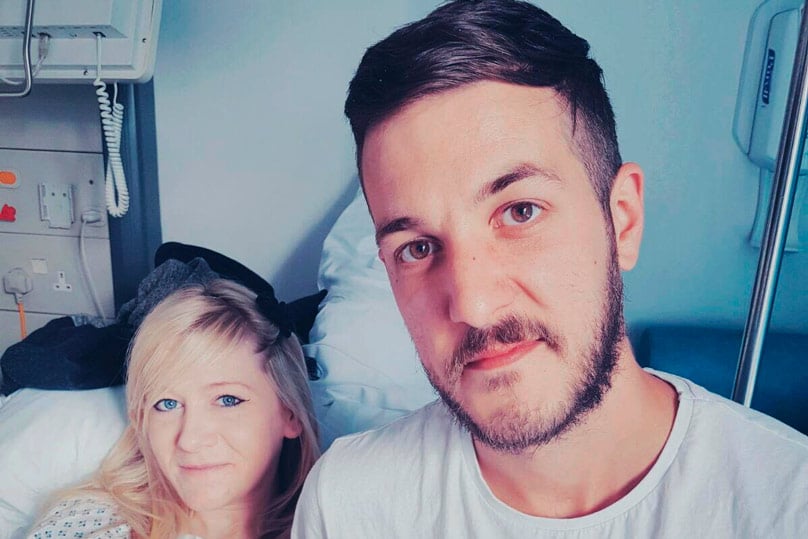
For those unfamiliar with his story, Charlie Gard is a British baby just a couple of weeks shy of his first birthday.
He suffers from a rare inherited mitochondrial disease referred to as MDDS, a condition which has kept him in hospital and ventilator-dependent for the past 10 months.
While no treatment is available in the UK, there is a doctor in the USA who would be willing to treat Charlie with something known as nucleoside therapy which, while never tested on anyone with Charlie’s specific condition, has been found to have some limited benefit in similar cases. Charlie’s parents raised the funds to take him to the US for the treatment, but the hospital does not believe it to be in his best interests, and so asked the court to decide what was, in fact, best for Charlie.
The court decided that Charlie’s best interests would be to have the ventilator switched off and he be allowed to die. The court overruling a parent’s decision about the treatment their child receives is uncommon, but not unheard of. For example, the courts have been known to overrule the decision of a Jehovah’s Witness parent to refuse a blood transfusion for their child.
Whether we agree with it or not, the courts have long had a role in supplanting their decisions for those of the parents, but that usually happens where the child’s life is at risk and the court is stepping in to save it. Charlie’s case is different because obeying the court’s decision would result in his death, so this is new territory.
In her article of last week, Simcha Fisher looks at the case and suggests the situation is not as simple as a divide between the “good people” who want to try everything to save Charlie and the “bad people” who want to remove his life support.
She’s right, it’s not. But it’s also not as simple as simply looking at the Charlie Gard case in isolation.
While his case, as Simcha argues, might not in itself be an example of eugenics, it is a result of a eugenic and commercially-motivated mentality which has pervaded the culture for far too long.
There are many reasons why I believe this to be the case, but I will focus on just one. In his judgment, Justice Francis noted that at one stage, the hospital “got as far as deciding to apply for ethical permission to attempt nucleoside therapy here,” but that by the time the decision was made, Charlie’s condition had deteriorated to such an extent that the treatment would have been useless anyway.
The question I am left with is why the hospital did not already have permission to attempt nucleoside therapy, and the answer, I believe, is where the eugenics comes into it.
While the DNA of a baby is mainly contained in the nucleus of a cell, there is a small amount of DNA in the mitochondria located in the part of the ovum outside of the nucleus.
It is from this mitochondria that diseases like Charlie’s are caused.
Late last year, the UK Government approved a controversial form of IVF which would address this through the creation of three-parent babies.
The three-parent embryo is made by first creating two embryos through IVF and removing the nuclei of both. The nucleus taken from the fertilised egg with “unhealthy” mitochondria is placed into the “healthy” embryo which has just had its nucleus removed (and destroyed), resulting in an embryo with DNA contributed to by two women and one man.
What all of this scientific mumbo jumbo means is that the UK, instead of concentrating on treatments for mitochondrial disease has put its resources into preventing it by using artificial reproductive technologies to ensure no child suffering from mitochondrial disease is ever born in the first place. It is the very definition of eugenics and Charlie Gard’s case and likely death will be a result of a culture which has prioritised screening out of disability and disease to treatment of the same.
I wish Charlie’s case was a simple one involving a fight between the “good people” who want to try everything to save him and the “bad people” who simply want to let him die, because it would be an easier issue.
Unfortunately, the very same thing will happen to the next “Charlie” unlucky enough to be born in the UK, unless there is a change in its culture and the application of its medical resources—and cultural change is much harder. If any good can come from Charlie’s case, hopefully it is that it will be an impetus for such change.
